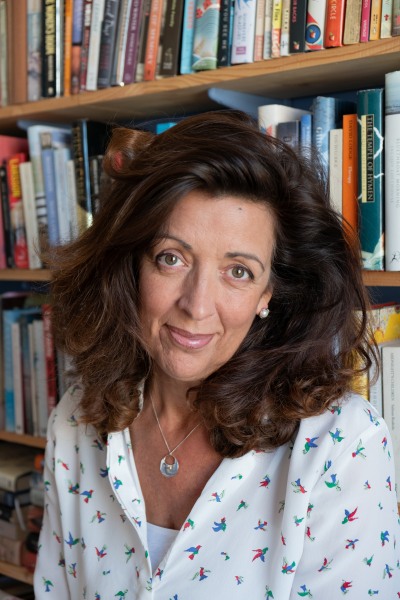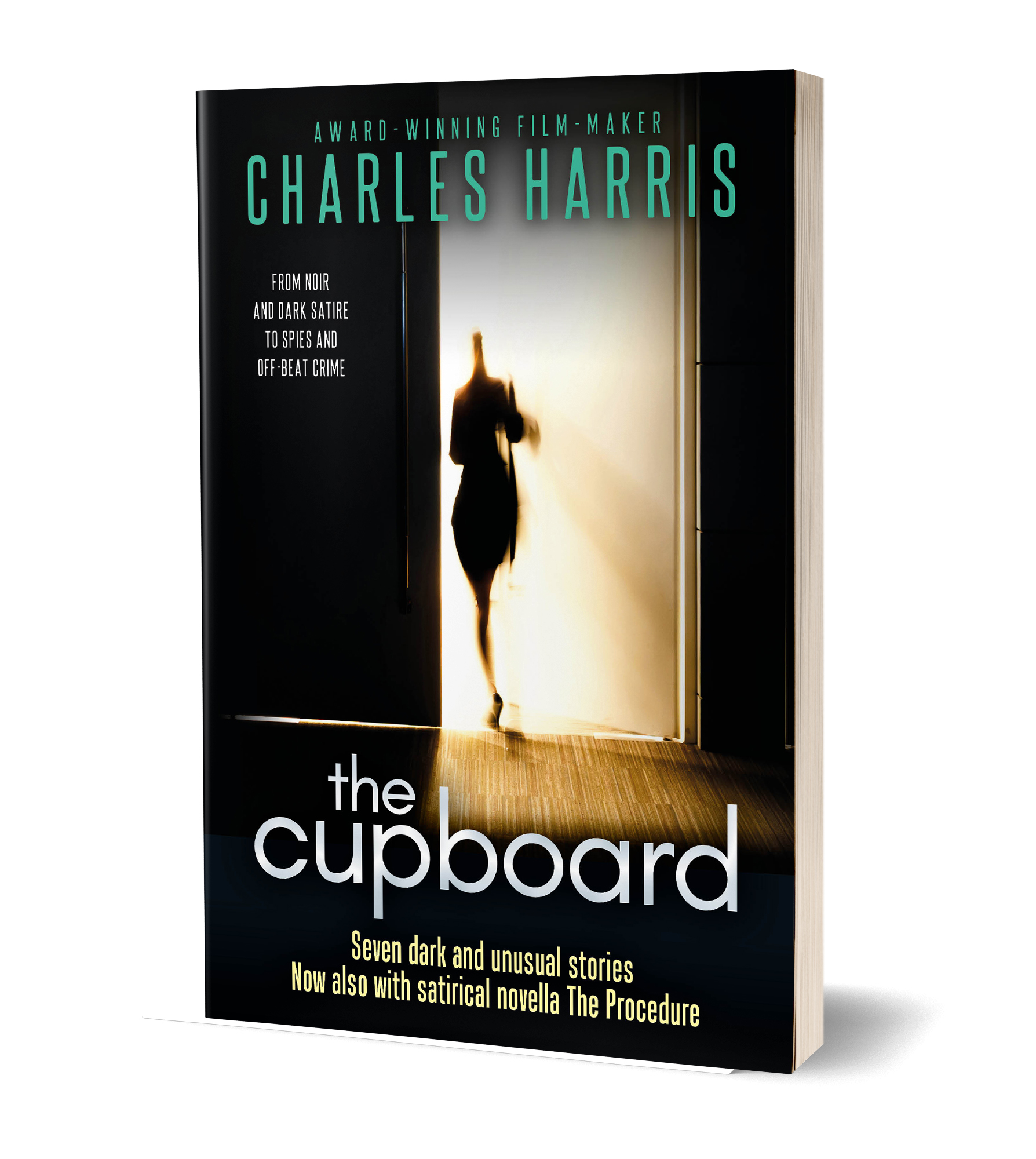Interview with award-winning author Louise Doughty
11 Wednesday Dec 2019
Written by Charles Harris in Books, Interviews, Novels, The Library Corner, Training
LOUISE DOUGHTY

Louise Doughty is one of the most interesting authors today. Refusing to be pigeon-holed, every book breaks new ground.
Her novels have been shortlisted for the Costa Novel Award and longlisted for the Orange Prize for Fiction and she has won awards for radio drama and short stories.
I have previously reviewed Black Water and her intriguing new novel Platform Seven, so I was delighted to be able to interview her this month.
Louise Doughty interview
In Platform Seven the first potential stumbling block is that your protagonist is already dead (no spoiler, as it’s in the blurb). I wondered how you approached that.
Writing a novel narrated by a dead person certainly presented its challenges – the most obvious one concerned the use of language, particularly verbs that related to movement.
In the first draft, Lisa was always ‘drifting’ or ‘floating’ or ‘whisking’ around the Station – which made her sound a bit like Caspar The Friendly Ghost. When I thought more about it I thought, she isn’t really a ghost in the traditional sense – there’s no floating around, no country house, no white nightie – she has no physical manifestation at all. She’s just pure consciousness.
So I tried to restrict myself as much as possible to ‘go’ or ‘went’ for movement, and avoided verbs that were related to any sort of physicality.
She’s not a poltergeist either – she can’t move objects, although she can pass through walls. Her most important psychic skill is that she can read the hearts and minds of the people on the Station.
That was vital as she’s not only the first-person narrator of her own story, she’s the omniscient narrator of the lives and loves of the people who work on the Station and the commuters who pass through it. Technically, it’s fair to say it was something of a challenge.
Darkness visited
How did you plan on dealing with the darker stuff that the story brings up, when she looks back at her life?
The flashback section, the ‘darker’ stuff you refer to, was actually much easier to write – a straightforward first person narrative of a living human being seemed very simple after the verbal acrobatics I’d had to perform in the first third of the novel.
The story of Lisa’s relationship with Matty, and how it descends into gaslighting and manipulation before becoming something very toxic indeed – well, sadly none of that was difficult at all.
It interests me that that section of the novel was so easy to write and yet a lot of people have said it’s their favourite section. I wonder if, as writers, we are always tempted to somewhat disregard the thing we find easiest to do.
Background influence
Your background is Romany and you’ve looked at your ancestry in previous books. Do you feel that has influenced your writing in any way, positively or negatively.
I think there is a point where all novelists want to address their ancestry, in some way or another – and in my case it was a gift as so few people have written novels that have tried to look at the inside of Romany culture, rather than the lazy stereotype of a ‘Gypsy’ character as a synonym for a free spirit – or worse as a thief or vagabond.
It was something of an open field. Fires in the Dark was very hard to write because it’s a Holocaust novel, about the mass murder of the Roma in Europe during the Second World War.
Stone Cradle was difficult in a different way because it was based very closely on my own family history and some elderly relatives were not too happy about it.
Both books involved huge amounts of research – both were very well reviewed although neither sold in huge numbers – it was considered very much a niche or minority subject. I remain incredibly proud of both novels, nonetheless – it’s always been a source of pride for me when I’ve tackled topics or characters that don’t usually get written about.
Empathy couldn’t be more important
Do you take up any political positions? Support any party? Or cause – such as feminism? Do you feel your writing reflects your views or do you deliberately avoid any such influences?
Well asking if I’m a feminist is a bit like asking me if I live and breathe. I don’t see how anyone can not be a feminist.
I’m a big supporter of diversity in writing as well – I helped the University of East Anglia set up a Scholarship for BAME (Black and Minority Ethnic) students who get places on the MA in Creative Writing. I believe – quite passionately – that we all benefit when the stories of different sorts of people are out there – as many have said before me, when you read a novel, you get to walk in someone else’s shoes.
Appreciating the story of someone who is different from yourself is an act of radical empathy. That couldn’t be more important nowadays.
Escape
How did you start writing?
I was a great reader as a child, including a lot of fantasy and science fiction: CS Lewis, Arthur C Clarke, Ursula Le Guin.
My local library was a place of refuge and like many writers I wouldn’t be here without it. I was something of a loner and a fantasist as a child and always making up stories. I suppose it began then, as a form of escape.
What was your first step towards success? Was there a realisation or a change of approach?
I’m not sure there was a step as such – it was more a long crawl. There were two complete novels that have never seen the light of day (thank heavens) before my first published one, which was Crazy Paving in 1995 – that’s not including all the false starts.
I did the MA in Creative Writing from the University of East Anglia but my first break didn’t come through that – it was through getting a runner-up prize in a short story competition, which was how I got my first agent.
I think the main realisation I had in the early days was about just how hard I was going to have to work, that there would be thousands and thousands of bad sentences before the good ones. There are no short cuts, sadly.
It’s just the middle 400 pages that’s tricky
How do you write? I think both writers and readers are interested in the mechanics – do you have fixed hours or a target word count? A favourite place? A special pencil?
I write on a laptop and usually in cafes or libraries. I find it very hard to write in the domestic space – it’s where I’m a partner, a mum, I just don’t have my work head on.
I’ve got quite inured to noise, over the years – as long as there’s a decent coffee and a decent amount of light, I can work almost anywhere. Having a walk first helps, as well, and booking myself into hotels if I need to get a concentrated stretch done (essentially, running away from home). To be honest, it’s all about escaping from family life in order to concentrate – that’s the big battle for me.
And I understand you create notes but try to avoid too much detailed planning. Do you generally have a sense of the ending you’re heading to, or do you dive entirely into the unknown?
Well with the new book, the one I am about to start, I have already written the last paragraph – although very little else. I normally know where I’m going to start and where I’m going to end up – it’s just the middle 400 pages that’s tricky… that sounds facetious but I’m quite serious.
There’s always a sense in which I put down a couple of key markers, and then, yes, float off into the unknown. Writing one scene is what gives me the idea of another. It’s an organic process. I really do make it up as I go along.
It’s important to nourish yourself
Who/what are your major influences? Whether other books, writers or indeed non-literary figures?
All the obvious ones: Margaret Atwood, Helen Dunmore, Hilary Mantel – I love writers who can do things I can’t, Anne Enright, Michael Ondaatje, the late great Toni Morrison and Chimamanda Ngozi Adichie.
I’m reading Bernadine Evaristo at the moment, and about to start Irenoson Okojie’s new collection of stories. I also love non-fiction writers such as Janet Malcolm and Asne Seierstad. Really, one life isn’t enough.
Since you mention it, how do you find time to read?
Yes, the time! Finding time to read is as important as finding time to write and just as difficult.
It’s so important to nourish yourself. I’m just coming to the end of a book tour and have put a line through the next three months. I will be ignoring email as much as possible and getting on with the next book but – most of all – cannot wait to have more time to read.
Fun
What do you do for fun? (Not to say that writing can’t be fun). How do you spend your time off?
Fun? What’s that?? The last two decades have been a blur of writing and childrearing so… although, recently, I have got into walking. I went hiking in the Norwegian fjords this summer and absolutely loved it.
As my domestic duties ease up, I think walking is going to be my thing. It’s a great thing for a writer to do because it allows so much thought at the same time, although I have a lousy sense of direction so going with a guide or a group is going to be essential if I don’t want to get lost in the hills.
What can we look forward to seeing next?
I start the new novel in earnest in January – I’ll have around 18 months to write it and it should appear in 2022.
Publishing a book every three years is a rhythm that works well for me and I hope to stick to it as long as they keep letting me do it. I always have several ideas bubbling away in my head and will run out of breath in my body before I run out of stories, I hope.
As I say, one life just isn’t enough.
Read more
Dark night of the soul: Platform Seven reviewed
Darkness in the Pacific: Review of Black Water


Tell people what you think